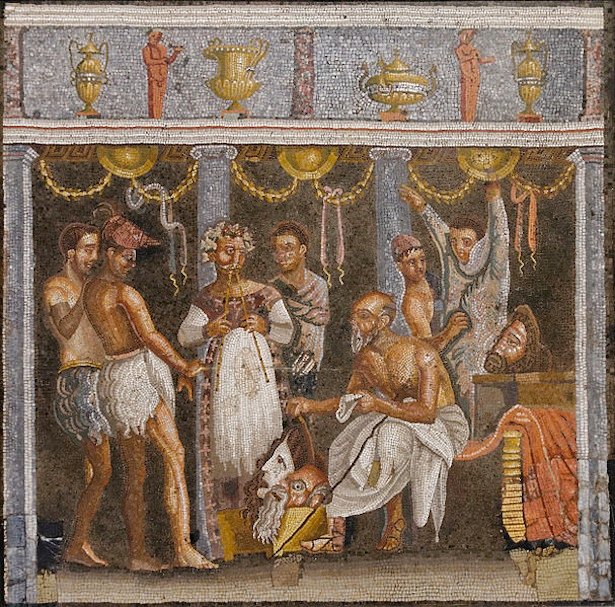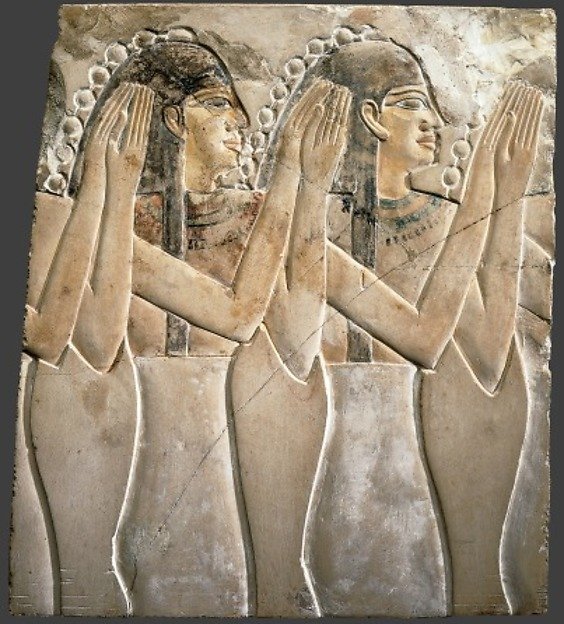Clapping To Show Appreciation Is An Ancient And Widespread Behavior
AncientPages.com - Clapping is a common international behavior when we wish to show our appreciation of something. It's something we simply do, especially when we are in large groups.
But when exactly did clapping become the norm for expressing applause? When did we start clapping to show appreciation? As a matter of fact, it turns out that clapping is an ancient and widespread behavior.
Researching ancient history we learn that the practice of clapping as a way of applauding can be traced to ancient Greece as well as ancient Rome.
Roman mosaic of choregos and actors, from the House of the Tragic Poet, Pompeii.
According to University of Chicago theater professor and Northlight Theatre dramaturg Gavin Witt, clapping was well established even in 4th Century B.C. Athens, where performers "competed for prizes and paid applauders to influence judges."
See also:
How Did Ancient Romans Grow Their Gardens?
First Pay Toilets Were Invented In Ancient Rome In 74 A.D.
The ancient Romans, on the other hand, had a set ritual of applause for public performances. People expressed degrees of approval. They could snap the finger and thumb, clap with the flat or hollow palm, wave with the flap of the toga, for which last the emperor Aurelian substituted a handkerchief (orarium), distributed to all Roman citizens. Some ancient Roman emperors really enjoyed clapping. Emperor Nero, established a school of applause and was followed on his concert tours by a claque of 5,000 knights and soldiers.
It should be added that we are not the only species to put together our hands. Gorillas, chimps, and orangutans sometimes clap their hands to get attention. However, clapping as a sign of joy or approval is a learned behavior and to our best knowledge limited to humans.
Copyright © AncientPages.com All rights reserved. This material may not be published, broadcast, rewritten or redistributed in whole or part without the express written permission of AncientPages.com
More From Ancient Pages
-
 Mystery Of The Delphi Oracle Prophecies: Was Pythia On Drugs While Guiding Ancient Greek Civilization For Thousands Of Years?
Civilizations | Nov 3, 2016
Mystery Of The Delphi Oracle Prophecies: Was Pythia On Drugs While Guiding Ancient Greek Civilization For Thousands Of Years?
Civilizations | Nov 3, 2016 -
 Boreas – Mighty North Wind God In Greek Mythology
Featured Stories | Mar 26, 2023
Boreas – Mighty North Wind God In Greek Mythology
Featured Stories | Mar 26, 2023 -
 Ancient Secrets Of The Masters Of Mu – Myths And Legends Examined – Part 1
Ancient Mysteries | Aug 24, 2018
Ancient Secrets Of The Masters Of Mu – Myths And Legends Examined – Part 1
Ancient Mysteries | Aug 24, 2018 -
 Ouroboros: Ancient Infinity Symbol Used By Different Ancient Civilizations
Ancient Symbols | Oct 3, 2017
Ouroboros: Ancient Infinity Symbol Used By Different Ancient Civilizations
Ancient Symbols | Oct 3, 2017 -
 Surprising Ancient Secrets Of The ‘Second Thoth’ And God Osiris
Ancient Mysteries | Sep 27, 2018
Surprising Ancient Secrets Of The ‘Second Thoth’ And God Osiris
Ancient Mysteries | Sep 27, 2018 -
 Strange Case Of The ‘Impossible’ Glove Remains Unexplained – The Investigation – Part 2
Featured Stories | May 28, 2019
Strange Case Of The ‘Impossible’ Glove Remains Unexplained – The Investigation – Part 2
Featured Stories | May 28, 2019 -
 Viking Longships: Fearless Dragonships Daring The Oceans And Seas
Ancient History Facts | Apr 16, 2016
Viking Longships: Fearless Dragonships Daring The Oceans And Seas
Ancient History Facts | Apr 16, 2016 -
 No Evidence Ancient Caribbeans Were Cannibals – Scientists Say
Archaeology | Aug 23, 2021
No Evidence Ancient Caribbeans Were Cannibals – Scientists Say
Archaeology | Aug 23, 2021 -
 Investigation Of The Elusive Will-o’-the-Wisp Leads To A Surprising Discovery
Featured Stories | Feb 6, 2025
Investigation Of The Elusive Will-o’-the-Wisp Leads To A Surprising Discovery
Featured Stories | Feb 6, 2025 -
 History Of The Saltire – Scotland’s National Flag And World’s Oldest Sovereign Flag
Featured Stories | Apr 3, 2016
History Of The Saltire – Scotland’s National Flag And World’s Oldest Sovereign Flag
Featured Stories | Apr 3, 2016 -
 Deciphered Ancient Stone Tablets Contain Sacred Knowledge That Could Re-Write History
Ancient Mysteries | Aug 28, 2018
Deciphered Ancient Stone Tablets Contain Sacred Knowledge That Could Re-Write History
Ancient Mysteries | Aug 28, 2018 -
 Anchor Church Caves – Has The Home Of Anglo-Saxon King Eardwulf And Saint Hardulph Been Found?
Archaeology | Jul 23, 2021
Anchor Church Caves – Has The Home Of Anglo-Saxon King Eardwulf And Saint Hardulph Been Found?
Archaeology | Jul 23, 2021 -
 Legacy Of The Iconic Sycamore Gap Tree – Historical Landmark At Hadrian’s Wall
Featured Stories | Mar 28, 2024
Legacy Of The Iconic Sycamore Gap Tree – Historical Landmark At Hadrian’s Wall
Featured Stories | Mar 28, 2024 -
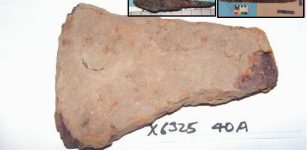 Spearheads – The Chemical Fingerprint Of Viking Weapons – New Study
Archaeology | Feb 18, 2022
Spearheads – The Chemical Fingerprint Of Viking Weapons – New Study
Archaeology | Feb 18, 2022 -
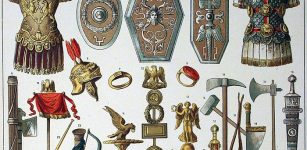 Source Of Ancient Roman Silver Was The Iberian Peninsula
Archaeology | Dec 18, 2021
Source Of Ancient Roman Silver Was The Iberian Peninsula
Archaeology | Dec 18, 2021 -
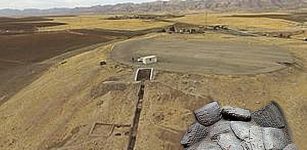 Bassetki Cuneiform Tablets Reveal Location Of Lost City Of Mardaman In Northern Mesopotamia
Archaeology | May 14, 2018
Bassetki Cuneiform Tablets Reveal Location Of Lost City Of Mardaman In Northern Mesopotamia
Archaeology | May 14, 2018 -
 Monster Water God Gong Gong Blamed For Cosmic Catastrophes In Chinese Myths
Chinese Mythology | Nov 2, 2020
Monster Water God Gong Gong Blamed For Cosmic Catastrophes In Chinese Myths
Chinese Mythology | Nov 2, 2020 -
 Elusive Celtic Otherworld Where Tuatha Dé Danann Reside And Time Passes Slower
Celtic Mythology | Apr 7, 2018
Elusive Celtic Otherworld Where Tuatha Dé Danann Reside And Time Passes Slower
Celtic Mythology | Apr 7, 2018 -
 Zhang Heng Seismograph Could Record Earth’s Dangerous Movements
Artifacts | Mar 8, 2023
Zhang Heng Seismograph Could Record Earth’s Dangerous Movements
Artifacts | Mar 8, 2023 -
 Face Of Iron Age Female Druid Reconstructed
Archaeology | Aug 20, 2019
Face Of Iron Age Female Druid Reconstructed
Archaeology | Aug 20, 2019

